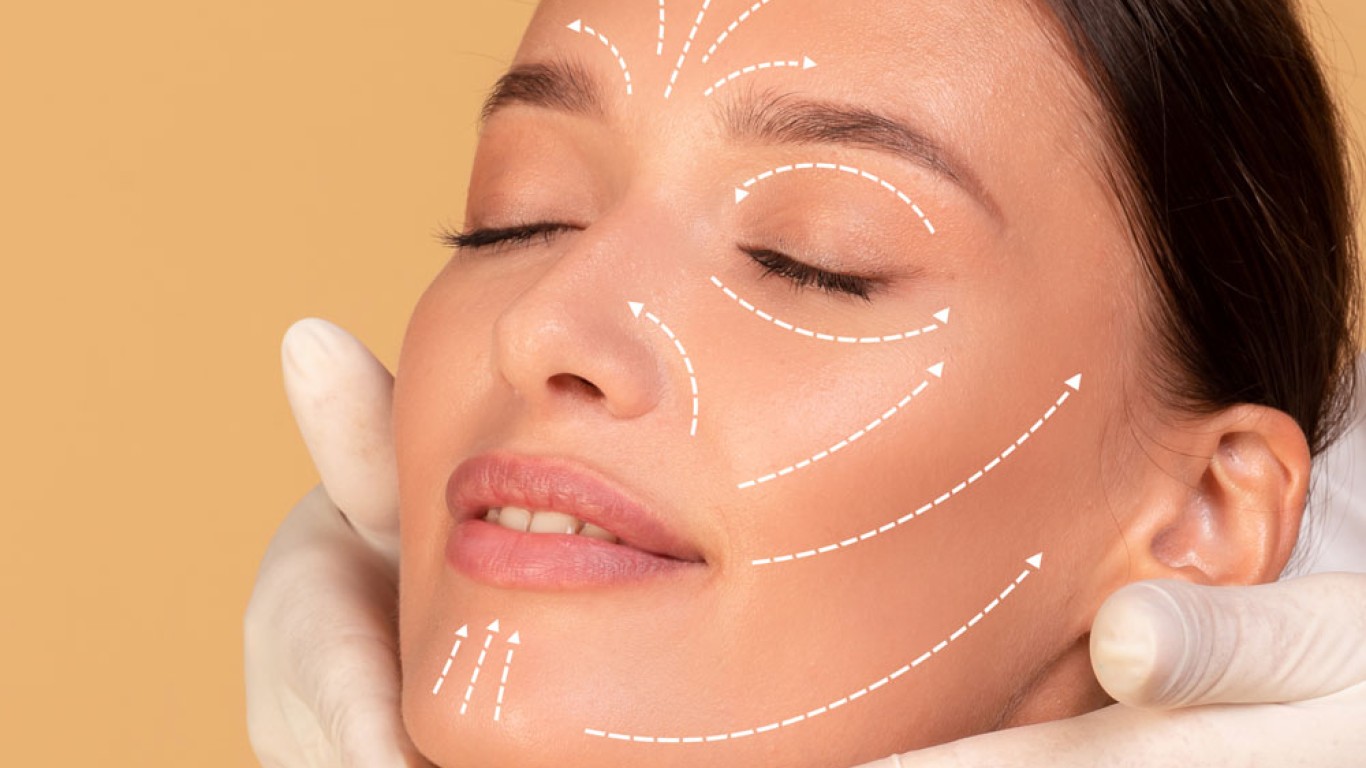Introduction
Facial ageing can impact self-confidence, but cosmetic procedures help restore a youthful appearance. Two common terms often used are “rhytidectomy” and “facelift”. Although used interchangeably, subtle differences exist. Understanding these differences can help you make the best decision for your goals. This article will clarify what a rhytidectomy involves, how it compares with a facelift, and what you can expect.
What Is a Rhytidectomy?
A rhytidectomy is the medical term for a facelift. It refers to surgical facial rejuvenation. Specifically, it targets sagging skin, deep lines, and jowls by tightening facial muscles and removing excess skin. The procedure creates a smoother and firmer facial contour. Importantly, it focuses on the lower two-thirds of the face and neck. Rhytidectomy procedures vary in technique but share a common goal: reversing visible signs of ageing.
How Does a Facelift Differ?
Although “facelift” and “rhytidectomy” are often used synonymously, facelift is a broader, more commercial term. It includes both surgical and non-surgical options. A facelift may involve surgery, injectables, or thread lifts, depending on patient needs. However, rhytidectomy strictly refers to surgical lifting. So, all rhytidectomies are facelifts, but not all facelifts are rhytidectomies. This distinction helps patients understand what procedures best suit their goals.
Techniques Used in Rhytidectomy
There are several surgical techniques used in a rhytidectomy, each offering different results. The most common include:
- Traditional Rhytidectomy: Involves an incision from the hairline around the ear.
- Mini Rhytidectomy: Uses shorter incisions for milder correction.
- Neck Lift Add-On: Often combined with rhytidectomy for enhanced neck definition.
These methods allow customisation based on facial structure and ageing severity. The choice depends on the desired outcome and skin condition.

Results You Can Expect
Rhytidectomy results are typically long-lasting. You can expect:
- Firmer skin with fewer wrinkles
- Defined jawline and reduced jowls
- Younger overall facial appearance
The full effect is visible within a few months. Results can last 7–10 years, especially with proper skincare and lifestyle habits. Consequently, this makes rhytidectomy one of the most effective options for dramatic rejuvenation.
What About Downtime and Recovery?
Full recovery from a rhytidectomy usually takes six to eight weeks.
Here’s what to expect:
- Mild to moderate swelling and bruising
- Tightness in the facial area
- Stitches removed within one week
Patients are often advised to rest and avoid strenuous activity. While some may return to work after 10 days, healing varies. Following post-op instructions is essential for optimal results.
Cost Considerations for Rhytidectomy
The cost of a rhytidectomy depends on several factors, including:
- Location of the clinic
- Surgeon’s experience
- Anaesthesia and facility fees
Generally, rhytidectomy is more expensive than non-surgical facelift options. However, its long-lasting effects can make it more cost-effective in the long term. Many clinics offer consultation packages to discuss costs upfront.
Longevity of Rhytidectomy vs Other Facelifts
One major advantage of rhytidectomy is its durability. Compared to injectables or threads, surgical facelifts provide results that last years, not months. Non-surgical facelifts may require repeat treatments, making them more expensive over time. Thus, patients seeking long-term rejuvenation often prefer rhytidectomy. Maintenance through skincare and sun protection enhances results further.
Who Is the Best Candidate?
The ideal rhytidectomy candidate is someone:
- In good physical health
- With realistic expectations
- Showing signs of moderate to severe facial ageing
People with loose skin, jowls, or deep wrinkles often benefit most. A consultation helps determine whether a rhytidectomy or non-surgical facelift is best. Your surgeon will assess skin elasticity, bone structure, and lifestyle.
Popular Add-Ons with Rhytidectomy
Many patients choose to combine rhytidectomy with other procedures for enhanced results.
Common add-ons include:
- Eyelid surgery for refreshed eyes
- Brow lift for a smoother forehead
- Neck lift for comprehensive contouring
Combining treatments reduces overall downtime and cost. Additionally, it ensures balanced results across the entire face. Your surgeon will guide you on safe combinations.
Age Is Just a Number
There’s no perfect age for a rhytidectomy, but most patients are aged 40 to 70. Younger patients may opt for mini facelifts, while older patients benefit from full procedures. What matters most is skin quality, not age. If sagging or lines bother you, it may be time to consult a specialist.
How to Choose the Right Surgeon
Choosing the right surgeon is critical to achieving natural-looking results.
Look for someone:
- Board-certified with facial surgery experience
- Offering a personalised treatment plan
- Willing to show before-and-after photos
During the consultation, ask questions about the procedure, recovery, and expected outcomes. A reputable surgeon ensures safety and satisfaction.
Psychological Benefits of a Rhytidectomy
Beyond the physical transformation, rhytidectomy often leads to emotional and psychological improvements. Many patients report feeling more confident in social and professional settings. Feeling aligned with your appearance can reduce self-consciousness and boost self-esteem. Although results vary, enhanced satisfaction with facial features often improves overall quality of life. For those who’ve struggled with the effects of ageing, this positive shift can be truly life-changing.
Conclusion
In conclusion, the term “rhytidectomy” refers specifically to a surgical facelift. While all rhytidectomies are facelifts, not all facelifts are rhytidectomies. Understanding this distinction helps in making informed decisions. If you seek long-lasting, dramatic facial rejuvenation, rhytidectomy could be the ideal option.
For more information on facelift surgery and to book a consultation visit the ACIBADEM Beauty Center Face Lift webpage.
Frequently Asked Questions
Yes, rhytidectomy is the medical term for a surgical facelift.
Results can last 7–10 years with good skincare and a healthy lifestyle.
Sometimes. A neck lift can be included for enhanced contouring and smoother results.
Absolutely. Rhytidectomy is effective for both men and women seeking rejuvenation.
They offer mild results but lack the longevity and depth of a surgical rhytidectomy.














